Winter nights can mean a mouse in the house or even a rat. But poisoning isn’t the only way to get rid of them – humane mouse traps and deterrents are both possibilities that cause far less unnecessary suffering.
You're also more likely to see mice and rats in your garden during winter, but so long as they stay in the garden and don't cause damage to your shed or anything else, they shouldn't cause any problems out there.
Our guide explains what attracts rodents to your house, how to get rid of them humanely and how to prevent them from returning to your home.
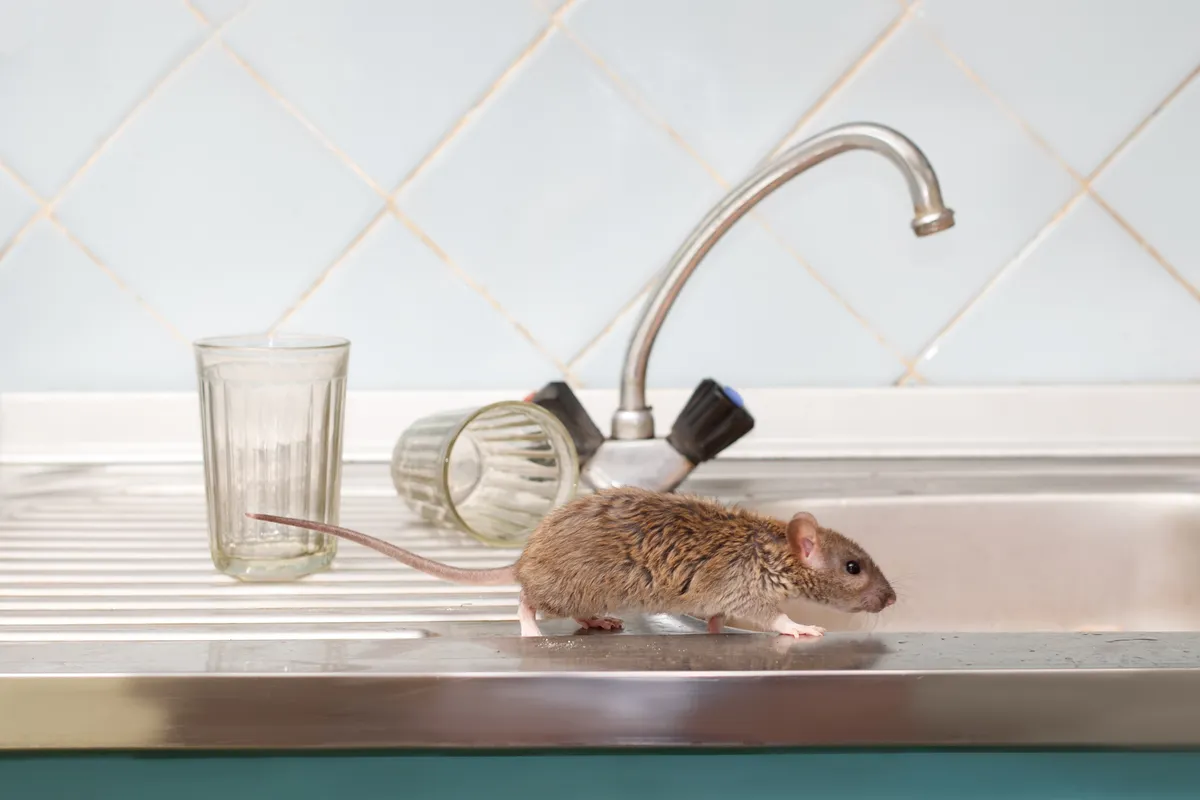
Which rats and mice enter houses?
House mice (Mus musculus), wood mice (Apodemus sylvaticus), yellow-necked mice (A. flavicollis) and brown rats (Rattus norvegicus) are all common in UK houses. Of the three mice, the one you’re most likely to encounter at home is the wood mouse, as this species is even more common in houses than the house mouse.
- Harvest mouse guide: how to identify, and why its tail is unique
- Gruesome images of albatross chicks eaten alive by house mice highlight need for action on remote Indian Ocean island
House mice and brown rats are most frequent in houses close to city centres, wood mice in the suburbs, and yellow-necked mice in rural areas in the South-east and Welsh borders.
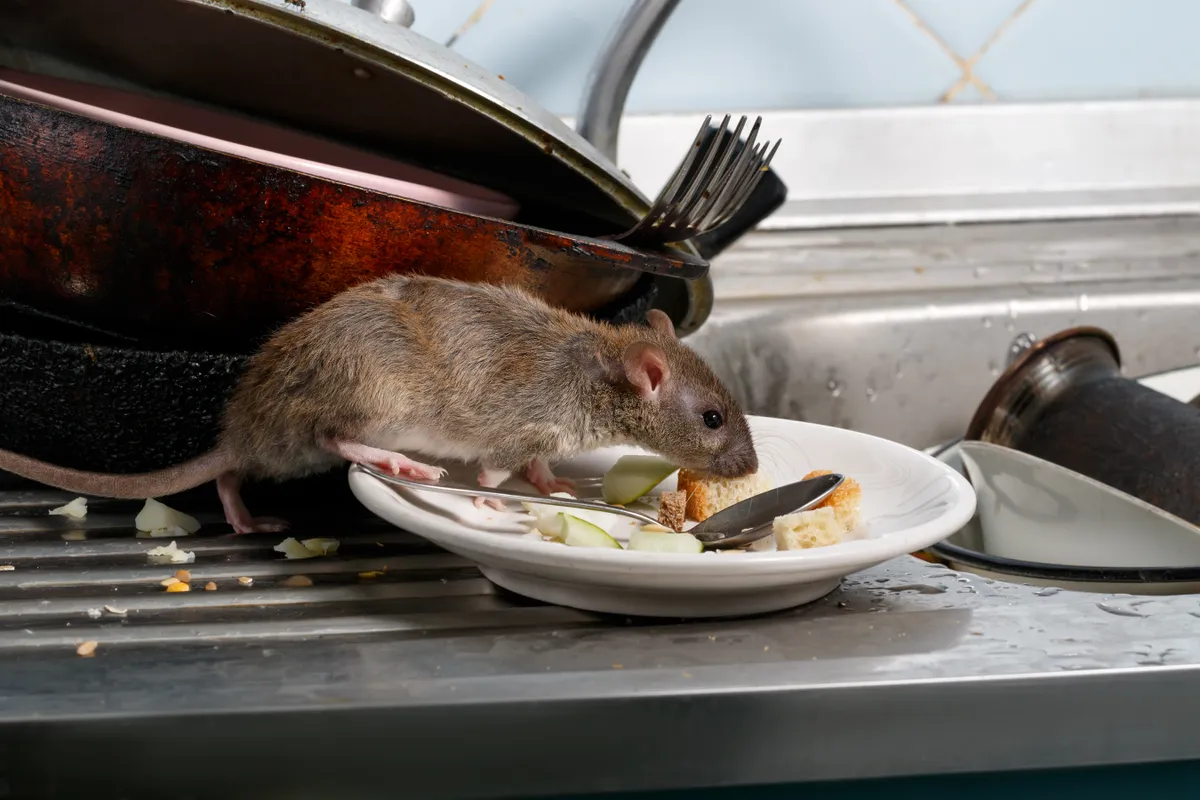
Rats and mice are most common in roof spaces, then cellars and cupboards. They can also live in wall spaces. Other visiting small mammals may include voles and shrews.
What attracts mice and rats to your house?
There are two main things that can attract mice and rats to your house – food and shelter. If you don't tidy up properly and there's food waste on the floor or surfaces, rodents are going to love it!
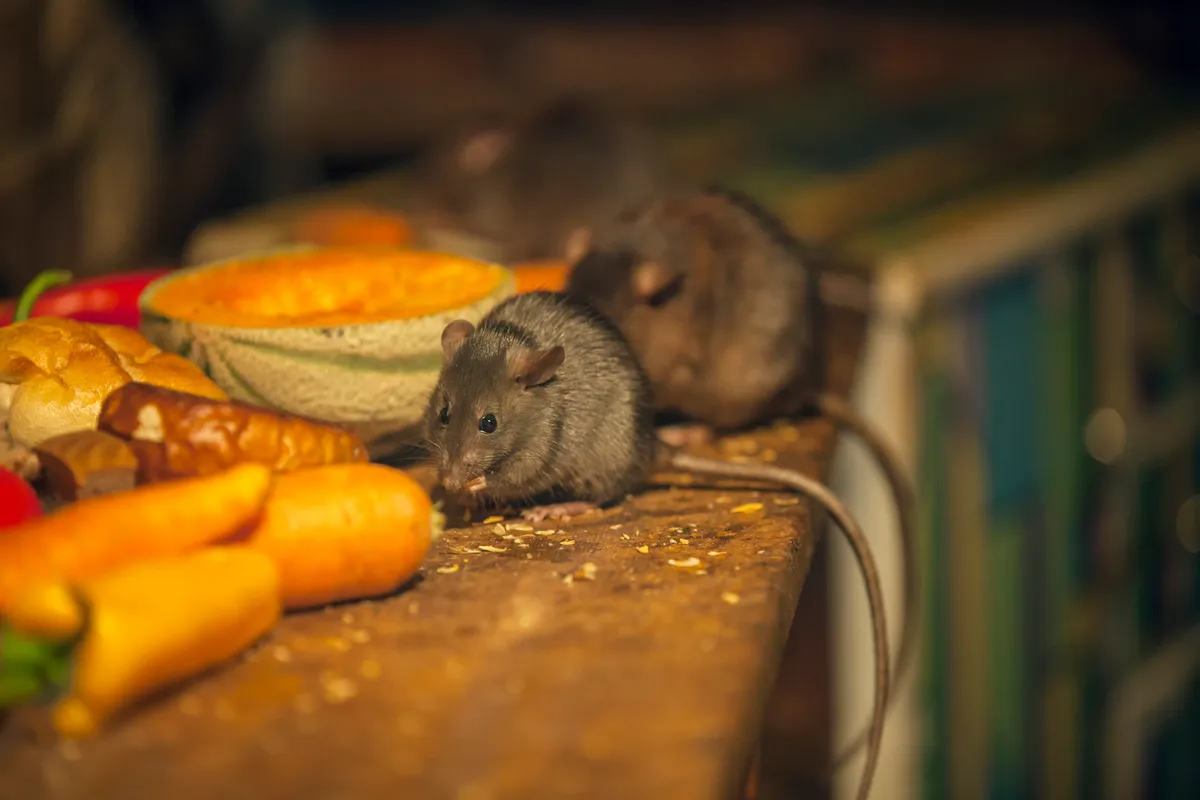
Rats and mice also need shelter, particularly during winter to avoid the worst of the cold. The same is true when they're trying to find a nice warm spot to raise their young. A heated home with lots of places to hide away is perfect, and an untidy home even more so.
Mice can squeeze through gaps less than 2cm in diameter, and rats only need slightly more space, so any small hole to the outside can serve as a rodent gateway straight into your home.
Signs of rats and mice in your house
- Cloying ‘acetamide’ smell characteristic of house mice, which is often described as vinegary or ammonia-like; other mice leave little odour.
- Gnawing sounds: rodents need to gnaw continuously to keep their incisors short.
- Tooth marks: larger ones are made by rats, who can gnaw through soft metals, such as lead and aluminium.
- Droppings: rat droppings are 12mm long and often tapered at one end; mouse droppings are roughly half the size and thinner.
- Greasy fur marks: rats and house mice leave dirty black smears along well-travelled routes, particularly ‘loop smears’ where they squeeze under roof joints.
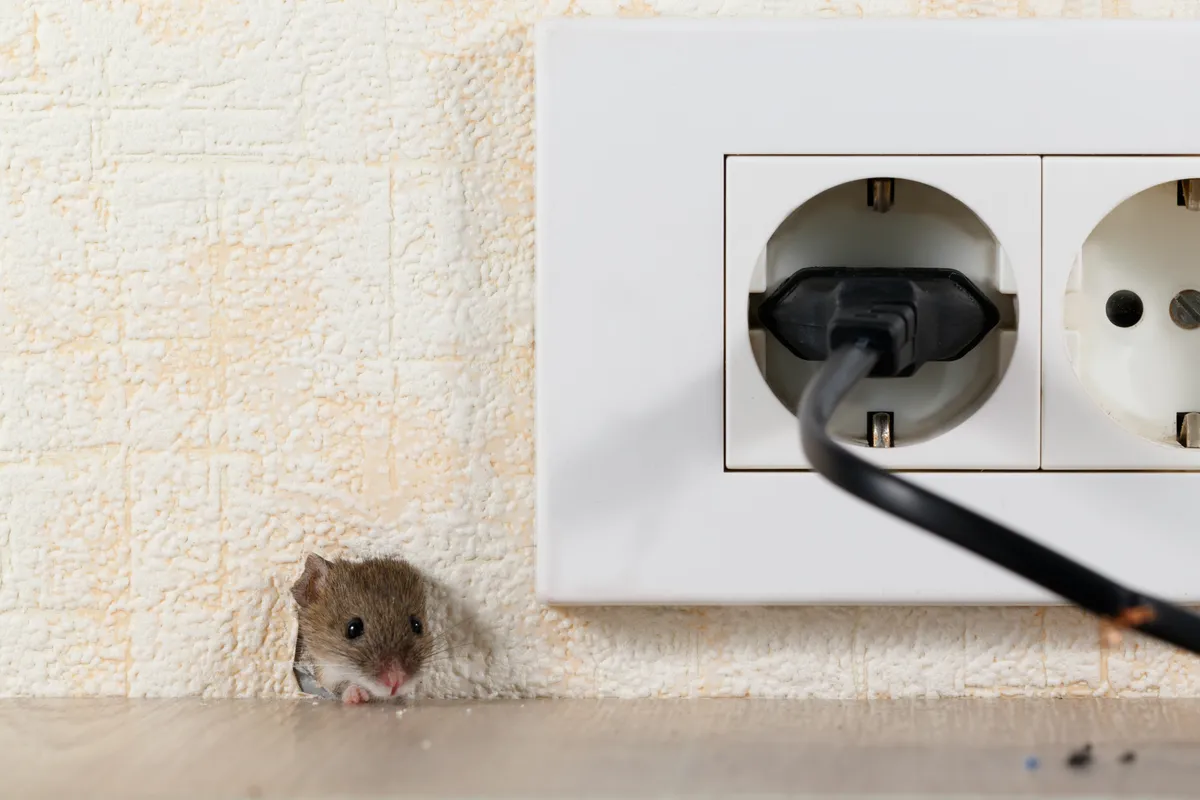
What problems can mice and rats cause?
Rodents generally cause minor problems in houses – of those with yellow-necked mice, 42 per cent suffer damage to furnishings and internal structures, 31 per cent to food, and 9 per cent to insulation and wiring; 18 per cent suffer no damage.
Chewed wiring is a particular problem as it can lead to fires and be expensive to repair.
How to identify animal droppings
Droppings or scats can tell us a lot about which animals have been visiting our gardens, parks and countryside, including hedgehogs, foxes and badgers, as well as rats and mice.
Red fox in a garden. © Dgwildlife/Getty
How to get rid of rats and mice in your house
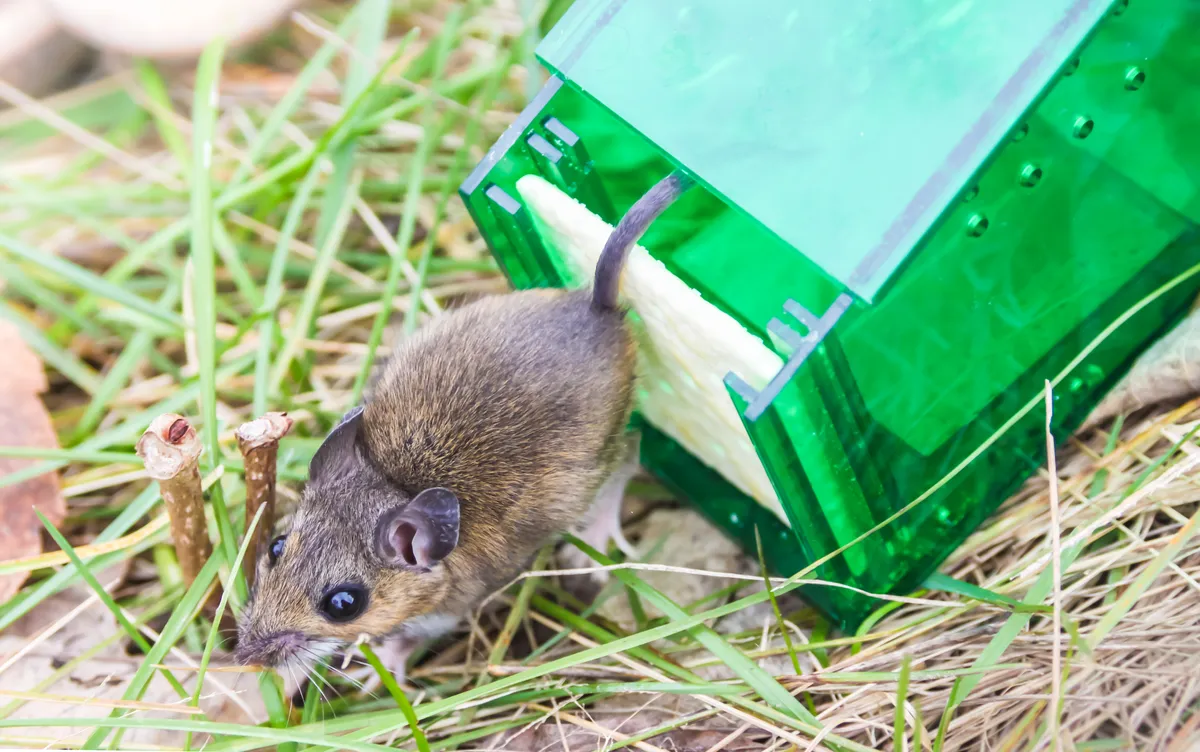
- Snap traps are a kind of mouse trap that kills instantly.
- Live traps (pictured above) may appeal, but ‘dumping’ the animal in the wild is likely to lead to its death as it will leave it exposed to predators. What's more, if you don’t take the rat or mouse at least 2km away, it may well arrive back home before you do.
- Indoor devices that use electromagnetic interference or ultrasound to drive rats and mice out of houses can work brilliantly. But don’t use them if there are bats in the house or roof.
- Anti-coagulant mouse and rat poisons cause a slow, painful death. Problems also occur if the rodent is eaten before it dies – 40 per cent of barn owls, polecats, stoats and weasels carry rodenticides from eating poisoned prey. There's also a risk to children and pets.
Prevention is the best long-term way to get rid of rodents in your house.
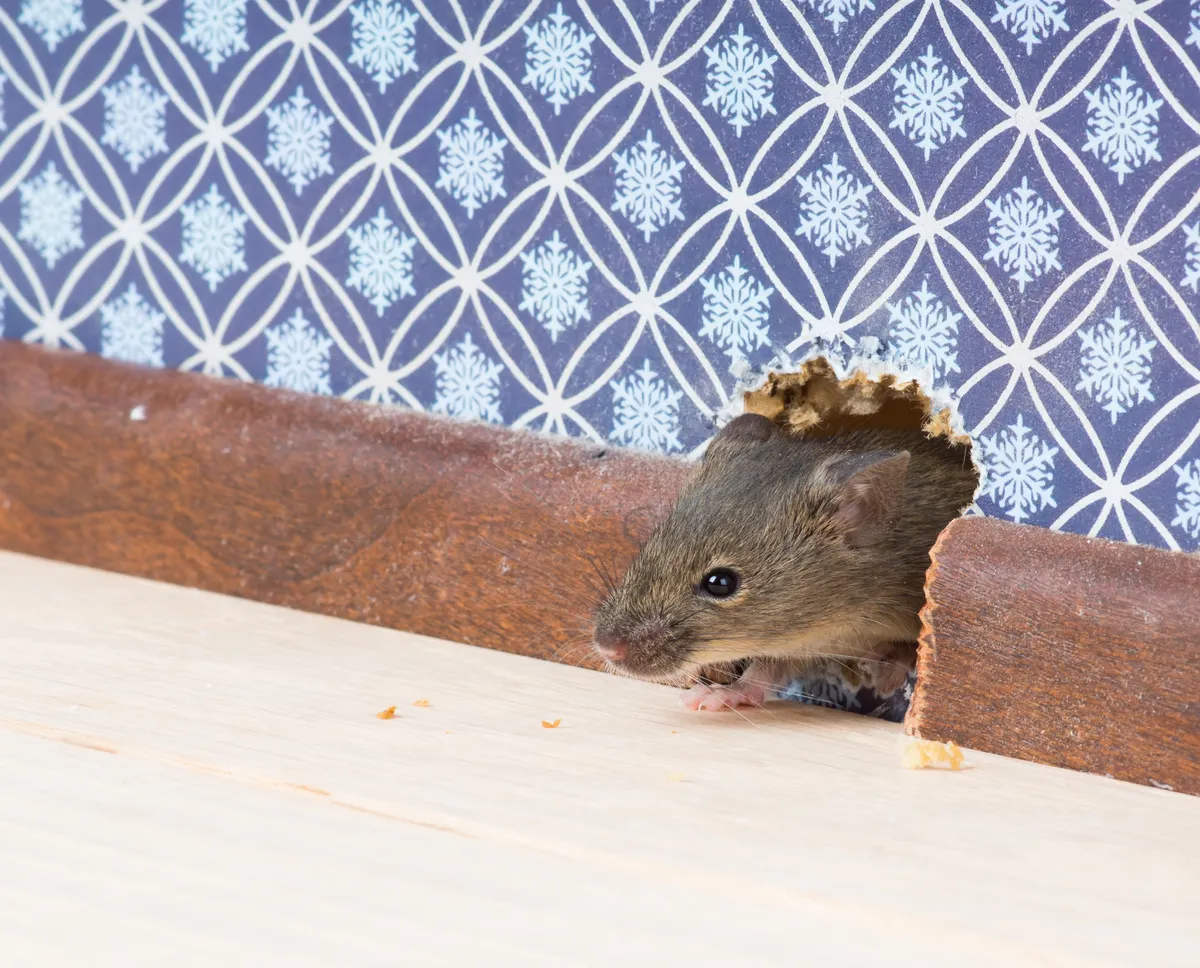
How to keep rats and mice out of your house
The one thing you can do straight away is to have a really good tidy and clean to remove all the traces of food (crumbs, grains of sugar left on the counter after you make a coffee, droplets of juice dried onto the cupboard door). Food left out is irresistible to rodents, so deal with it and wash it up straight away. Keep all food – especially dry food, and compost waste – sealed away in an airtight box.
Secondly, examine your house to make sure it's as airtight as possible. Seal up large cracks in floorboards, repair broken air bricks and holes in outside walls or skirting boards; tidy up cupboards and remove any material lying around that could be used for nesting.
Rodents have a highly tuned sense of smell, so strong scents such as peppermint oil are overwhelming and unpleasant for them. Try leaving cotton wool balls with 8-10 drops of peppermint essential oil in the corner of rooms or near suspected entry points (you'll need to refresh these every couple of days or so). There are also plug-in devices which emit a high-frequency noise disliked by rodents, which can help.
Alternatively, if you're a cat lover and have been looking for a reason to give a good home to a feline friend, here's the excuse you've been waiting for!
Do cats keep mice and rats out of your house?
The short answer is, yes – cats are highly effective deterrents in the areas of the home that they can reach, even if they're not really 'mousers'. Rodents do not like the smell of cats, one of their natural predators, and will avoid being caught in the open.
However, cats cannot get to mice once they're back inside the walls of your house, or in floorboards and attics, so you'll just be deterring them from your living spaces. If you have a cat, make sure you've taken the preventative steps listed above in order to make your home as unattractive to mice as possible.
How to deal with a serious rat or mouse infestation
If you've tried to humanely deal with rodents in your home and suspect an infestation it is worth contacting your local council pest control for advice, as rats can carry diseases, such as Weil's disease.